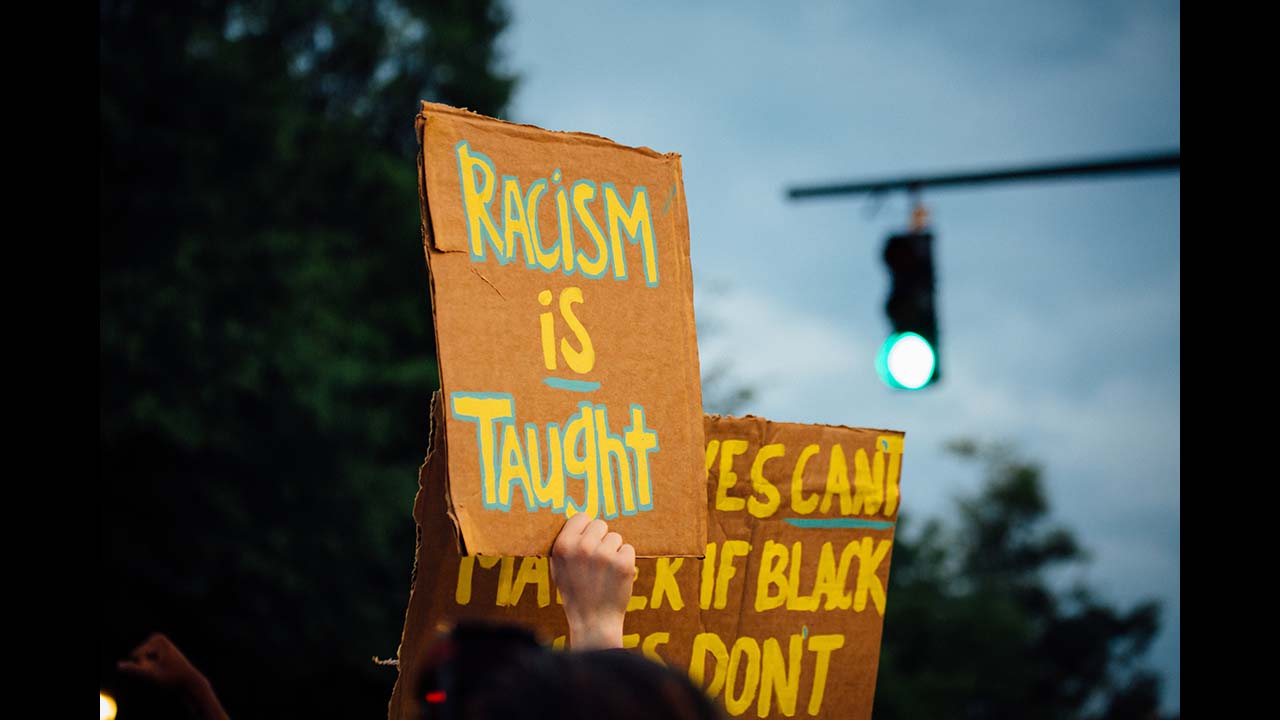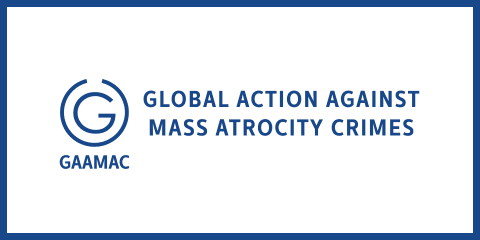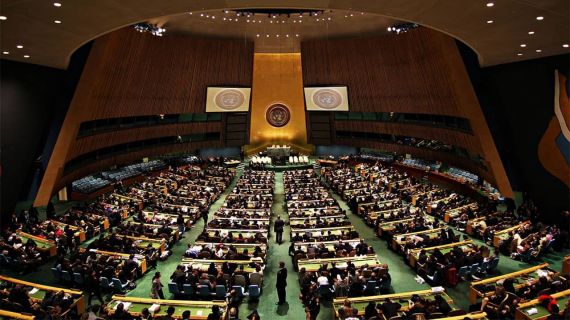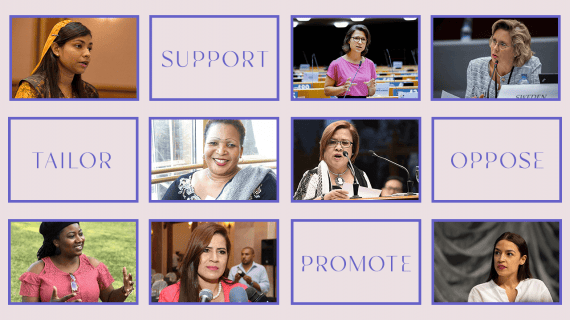
London/Kuala Lumpur/Quito:
On 16 November 2021, PGA led a virtual workshop on “Women leaders legislating against racism, hate speech, and discrimination” upon the invitation of its long-standing partner - the Global Action Against Mass Atrocity Crimes (GAAMAC).
Within the framework of GAAMAC’s Fourth Global Meeting on “Strengthening national efforts to address hate speech, discrimination and prevent incitement”, experts, civil society representatives, Members of Parliament, and other key stakeholders, gathered to discuss the prevention of disinformation which have notably contributed to the increase of hate speech, incitement and the commission of egregious crimes.
PGA member Lord Purvis of Tweed, MP (United Kingdom) moderated this insightful exchange, during which two prominent parliamentarians from different regions shared their experience as women legislators. Lord Purvis, a strong supporter of good governance, the Rule of Law, and sustainable development goals, conveyed that such a workshop was necessary and a positive step toward fighting this scourge. It is a universal challenge affecting many countries around the world, including well-established democracies. Before the event, Lord Purvis participated in a parliamentary debate over combating Islamophobia, a trend which, according to studies, is having a disproportionate impact on women worldwide. As part of this debate, he also engaged with several NGOs and civil society representatives to discuss means and ways to protect women and girls in Afghanistan while further stressing the importance of strengthening the United Kingdom (UK)’s role in supporting female leadership within the Islamic world.
In her intervention, Dip. Esther Cuesta, MP (Ecuador) and Chairperson of the PGA National Group, highlighted that a United Nations Women Study (available in Spanish) reported that in 2019, over half of the women involved in politics in Ecuador were victims of discrimination based on gender identity, race, and political views, particularly in internal processes of political parties and domestic elections. This, in her opinion, is due mainly to the “heteropatriarchy” mindset, which is well-embedded in Ecuador’s institutions. Targeting women in politics is a common practice and a strategy used by male legislators in public and private spheres to silence dissent and undermine women’s political rights through, among others, defamation, the dissemination of false information, and misogynic, sexist, physical, and physiological slurs.
Freedom of expression is not an absolute right. It can be restricted to protect vulnerable groups, including children, adolescents, and women and to limit propaganda based on national, racial, ethnic, and religious hatred that also incites violence. Ecuador has made significant progress in this respect by ratifying the most relevant international human rights treaties. Moreover, a resolution was passed in Parliament in 2021 demanding an open democratic dialogue free of insults, defamation, and harassment, especially on social media. Although it is not yet a law, this step is a result of years of advocacy demanding that any form of violence be suppressed. Regardless of these significant advances, Dip. Cuesta stressed that many other challenges need to be tackled urgently. She urged legislators to apply the existing laws to achieve long-term policies and solutions. As an action point, she urged the Ecuadorian National Assembly to approve the law - currently in Parliament - which prevents and eliminates all forms of discrimination and intolerance. On this particular aspect, Lord Purvis of Tweed added that the UK recently changed its Code of Conduct in both houses and looked at the rules of procedure to guarantee that colleagues in Parliament do not use any discriminatory language against their peers.
To conclude, she highlighted that female participation must be increased to foster greater cohesion and gender solidarity. Parliamentarians should advocate for draft bills that address inequality in intersectional ways to improve the life of poor, rural, indigenous, and working-class women. Additionally, more training for police officers, judges, attorneys, and journalists should be developed to generate more awareness in these areas, along with more qualitative and quantitative engagement with grassroots organizations.
In her presentation, Hon. Kasthuri Patto, MP (Malaysia) and PGA Board Member emphasized that the debate was timelier than ever, considering that each day, more women worldwide are suffering in silence and are becoming victims of extreme violence, a part of facing racism, bigotry, defamation, sexism, and hate speech. Hon. Patto, who herself has been a victim of discrimination since elected Member of Parliament, highlighted that before 2006, the Malaysian parliamentary system did not penalize sexist remarks against women. This same year, women in Parliament joined their efforts and obtained that sexist language be finally banned through an amendment to the rules of conduct. Despite this regulation and the existence of standing committees where Members can bring forth complaints, the issue persists, and very few male legislators have been called out for their sexist remarks. This situation has created a hostile environment for women in politics.
Hon. Patto proposed an amendment to the Standing Order and a 500 ringgit fine for MPs violating this provision, following racist and sexist attacks against her by a member of the Government in 2020. The proposal was submitted to guarantee that any legislator using this type of language would no longer be given the “privilege” of apologizing and retracting offensive words, as they will most likely make use of such discriminatory words again. Concerning other outcomes, recent reports conducted by Malaysian NGOs on women’s inequality and gender-violence perceptions (see NGO CEDAW Shadow Report, for the Malaysian Government’s Review by the CEDAW Committee, at the 69th CEDAW Session in February 2018 and The Status of Women’s Human Rights: 24 Years of CEDAW in Malaysia) concluded that, unfortunately, many did not understand the concept of gender equality and considered discrimination against women as “acceptable.”
Like many other countries, Malaysia still has much work to do to achieve equality for: Female genital mutilation, child marriage, sexual harassment, and other severe acts of violence are still a reality. It should however be noted that more women are in the Malaysian Parliament than ever before, and more pressure is mounting to address discrimination and violence against women. Increasingly, women are coming forward to denounce violence, racism, bigotry, hate speech, discrimination, and gender discrimination - particularly when carried-out online.
Without good practices adequately propelled and implemented by Parliaments, there is a high risk that neither justice nor reparations will be granted to victims of these heinous acts, discouraging women from bringing their cases forward to the public, legal instances, or other accountability mechanisms.




